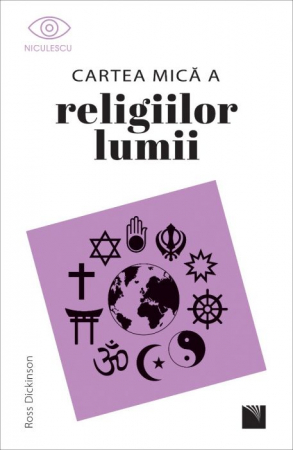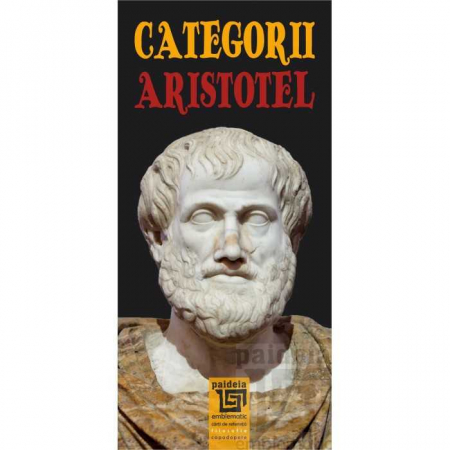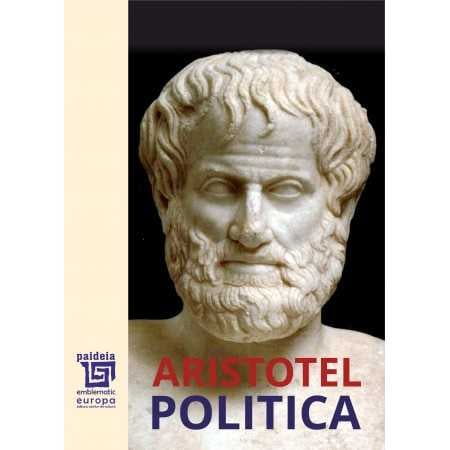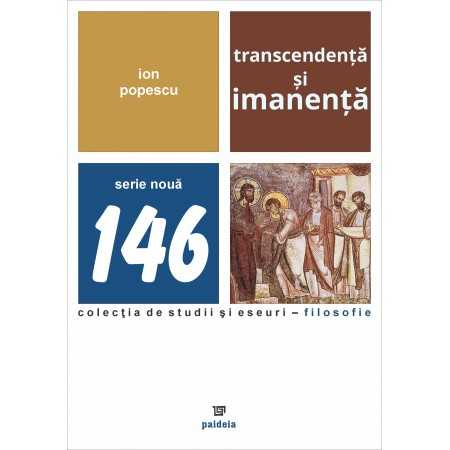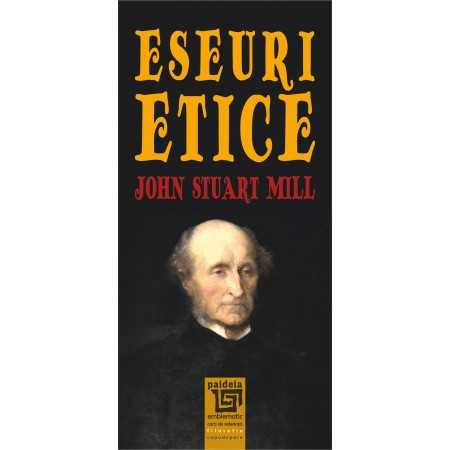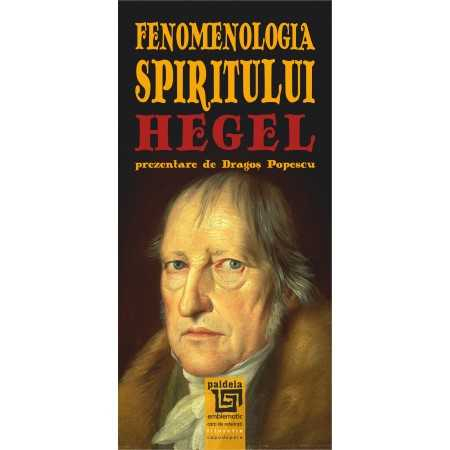Manuscript proposals: [email protected] / 0745 204 115 //// Tracking orders Individuals / Sales: 0745 200 357 / Orders Legal entities: 0721 722 783
6359.png) The spiritual life of the priest - a determining factor in the liturgical ministry and in his pastoral work - Vasile Miron
The spiritual life of the priest - a determining factor in the liturgical ministry and in his pastoral work - Vasile Miron
6359.png)
ISBN: 978-606-28-1445-8
DOI: https://doi.org/10.5682/9786062814458
Publisher year: 2022
Edition: I
Pages: 244
Publisher: Editura Universitară
Author: Vasile Miron
Product Code:
9786062814458
Do you need help?
0745 200 357
- Description
- Download (1)
- Authors
- Content
- More details
- Reviews (0)
Our work is a work of Pastoral Theology that depicts the overwhelming importance of the exemplary life of the priest, both in sacramental ministry and pastoral activity, and in the process of correcting the moral life of believers in the society we live. Our work seeks to develop these essential aspects and to emphasize, at the same time, the means by which the priest cultivates and deepens his moral and religious life.
Author
Author
-
The spiritual life of the priest - a determining factor in the liturgical ministry and in his pastoral work
Download
Arhimandrit Conf. Univ. dr. VASILE MIRON
Preface / 7
Preliminaries / 13
Chapter I
The moral life of the priest - an essential condition in fulfilling his pastoral mission and liturgical service / 17
Chapter II
The moral authority of the priest as a source and foundation of priestly prestige. The priest, an active fighter against moral evil / 40
Chapter III
The inner life and religious life of the priest. Its importance in the liturgical service and in the pastoral activity of the priest / 60
Chapter IV
Means for the maintenance and cultivation of the spiritual life of the priest / 102
Bibliography / 225
Preliminaries / 13
Chapter I
The moral life of the priest - an essential condition in fulfilling his pastoral mission and liturgical service / 17
Chapter II
The moral authority of the priest as a source and foundation of priestly prestige. The priest, an active fighter against moral evil / 40
Chapter III
The inner life and religious life of the priest. Its importance in the liturgical service and in the pastoral activity of the priest / 60
Chapter IV
Means for the maintenance and cultivation of the spiritual life of the priest / 102
Bibliography / 225
The priest of today is the catalyst and landmark that normalizes and orients the religious life of believers on the path of moral perfection. It is not in vain that it has been said that "the life of the clergy is the gospel of the laity," because deeds are more convincing than words, and the example of the moral life of the priest surpasses effectively the most superb discourse on the importance and beauty of virtue. In order to be "the light of the world" and "the salt of the earth" (Matthew V, 13, 14), the priest must first be a pious living of the Christian virtues. His impeccable and exemplary life must become in the eyes of all the living example of faith, godliness, kindness, gentleness, humility, patience, forgiveness, goodwill, sincerity, and hospitality so that, in this way, his priest represents the ideal image of Christ's ministry in the world.
The main purpose of the priestly mission is not only the sacramental one, to share with the faithful the grace, help, and blessing of God through the holy services, but also the didactic and pastoral, to guide and guide them on the path of salvation, by word and deed. the example of his life. There must be a perfect concordance between the word of instruction and the deeds of the priest, for if the facts contradict him and the theory does not agree with practice, all the effort of his liturgical, homiletical and pastoral ministry remains in vain and without any effect, because the word is stronger. than words. The sermon does not have the diamond power of example. Therefore, the priest must identify with the teachings he preaches.
The success of the pastoral activity of the priest is not given by the mastery and art of words, but by the beauty and adornment of his virtues which must shine like the light of the sun and like the gold clarified in the fire. A priest with a clean life and enhanced by the flowers of virtue is a barometer, a normative guide and a torch that illuminates in a candlelight the path of his pastors to God, because just as "the worthy and skillful commander saves the ship from drowning, so also the pastor good gives life and health to his speaking flock ", says Saint John the Scarecrow.
The lack of a clean life dishonors and disarms the priest, nullifying all his merits and efforts concentrated in the area of the Christian apostolate. Believers progress in moral and spiritual life, in proportion to the degree of morality and spirituality of the priest's life. A virtuous-living priest reflects to mankind the brightness of heaven and warms the world with the rays of his good deeds like a pure mirror of the Sun of Righteousness. "That is why the beauty of the priest's soul must shine in all the circumstances of his life, so that he can, at the same time, rejoice, but also the light of the souls of those who look at him", says Saint John Chrysostom.
The pastoral experience of the priest is a reflection of his religious experience and of the Christian virtues he practices. The more his life conforms to the doctrinal and moral principles he preaches, the easier his word of teaching penetrates the soul, taking deep root in the heart and life of his believers. Christian virtues are required to be fulfilled by any believer who wants to achieve the ideal of moral perfection, but the priest, as one who is meant to become the living embodiment of Christian perfection, must surpass his believers in experience and deed, conquering and his virtues, for the true life in Christ. Realizing in his person the sublime model of the life of our Lord Jesus Christ as a man, which the Holy Apostles and the Holy Fathers of the Church concretized in the deed, the priest can say with a clear conscience like the Holy Apostle Paul: I fought, I made the journey, I guarded my faith. Henceforth there is laid up for me a crown of righteousness, which the Lord will give me in that day ”(II Timothy, IV, 7-8).
The dignity and moral authority of the priest are represented first of all by his exemplary life and by his strength of character, because only from the height of his spiritual experience can he be an example of true virtue and nobility of soul and only by overcoming the condition of fallen life, can he fight? and resolutely condemn sin and vice. Only from the height at which virtue has highlighted and propelled him can the weakness in which sin has cast man be seen. By personally overcoming the passions and sins of his being, the priest shows in a concrete way, by his edifying example, the way in which the faithful can, in turn, free themselves from the bondage of immorality in which they are enslaved and handcuffed because of their sins.
Christian pedagogy and morality have formulated the indisputable truth that deeds are more convincing than words, and the example of personal life effectively surpasses any peroration about the beauty and importance of virtue. This can be really verified in the life, ministry and daily activity of the priest, because the eyes of the faithful follow everywhere the priest in his private life, in the pastorate and in the exercise of his liturgical function.
It is known how prestigious and how much moral authority the priest offers to his impeccable and holy life and what a positive effect it has on his faithful. The priesthood demands moral heroism, in the sense that the priest must be a worthy fighter against sin, an athlete of the spirit. He must be an active fighter of unbelief and moral evil, to behave in such a way as to shine in the eyes of all the light of good works (Matthew V, 16) and of purity of soul, to wear impenetrable armor, to be invulnerable in in the face of temptations, prejudices and occasions urging sin and to appear before all as a victor and never as a loser, deceased by weakness or cowardice.
The mission of preacher of the gospel and pastor of souls imposes on the priest a consciousness of responsibility always awake and active, a special zeal, ready at all times to face any pastoral-missionary situation, to satisfy any spiritual need of the faithful, to prevent any attempt at sectarian proselytism.
The personal life of the priest must be the living example of faith, piety, purity, zeal and self-sacrifice, therefore the sincere and sacrificial sacrifice of Christ.
The priest is in the service of Christ and of the Church, and this sublime mission of his is indebted to him to obey all the commandments and teachings of the Holy Gospel and the laws of the church. He must conscientiously fulfill his third mission as pastor, teacher and sanctifier of the life of believers, not out of compulsion or fear of punishment, but out of conviction and out of his own conscience (Romans XIII, 5), to accomplish in life and person to the ideal model of life which our Lord Jesus Christ has shown us as a man, and which the Holy Apostles and the Holy Fathers have followed and exemplified with fervent faith and zeal.
The perfect morality of the priest, that is, his spiritual life, is undoubtedly the best message to the world today, thirsty for an authentic, ideal Christian life, as the Savior showed us and how the saints lived. .
Our work is a work of Pastoral Theology that depicts the overwhelming importance of the exemplary life of the priest, both in sacramental ministry and pastoral activity, and in the process of correcting the moral life of believers in the society we live. Our work seeks to develop these essential aspects and to emphasize, at the same time, the means by which the priest cultivates and deepens his moral and religious life.
Author
The main purpose of the priestly mission is not only the sacramental one, to share with the faithful the grace, help, and blessing of God through the holy services, but also the didactic and pastoral, to guide and guide them on the path of salvation, by word and deed. the example of his life. There must be a perfect concordance between the word of instruction and the deeds of the priest, for if the facts contradict him and the theory does not agree with practice, all the effort of his liturgical, homiletical and pastoral ministry remains in vain and without any effect, because the word is stronger. than words. The sermon does not have the diamond power of example. Therefore, the priest must identify with the teachings he preaches.
The success of the pastoral activity of the priest is not given by the mastery and art of words, but by the beauty and adornment of his virtues which must shine like the light of the sun and like the gold clarified in the fire. A priest with a clean life and enhanced by the flowers of virtue is a barometer, a normative guide and a torch that illuminates in a candlelight the path of his pastors to God, because just as "the worthy and skillful commander saves the ship from drowning, so also the pastor good gives life and health to his speaking flock ", says Saint John the Scarecrow.
The lack of a clean life dishonors and disarms the priest, nullifying all his merits and efforts concentrated in the area of the Christian apostolate. Believers progress in moral and spiritual life, in proportion to the degree of morality and spirituality of the priest's life. A virtuous-living priest reflects to mankind the brightness of heaven and warms the world with the rays of his good deeds like a pure mirror of the Sun of Righteousness. "That is why the beauty of the priest's soul must shine in all the circumstances of his life, so that he can, at the same time, rejoice, but also the light of the souls of those who look at him", says Saint John Chrysostom.
The pastoral experience of the priest is a reflection of his religious experience and of the Christian virtues he practices. The more his life conforms to the doctrinal and moral principles he preaches, the easier his word of teaching penetrates the soul, taking deep root in the heart and life of his believers. Christian virtues are required to be fulfilled by any believer who wants to achieve the ideal of moral perfection, but the priest, as one who is meant to become the living embodiment of Christian perfection, must surpass his believers in experience and deed, conquering and his virtues, for the true life in Christ. Realizing in his person the sublime model of the life of our Lord Jesus Christ as a man, which the Holy Apostles and the Holy Fathers of the Church concretized in the deed, the priest can say with a clear conscience like the Holy Apostle Paul: I fought, I made the journey, I guarded my faith. Henceforth there is laid up for me a crown of righteousness, which the Lord will give me in that day ”(II Timothy, IV, 7-8).
The dignity and moral authority of the priest are represented first of all by his exemplary life and by his strength of character, because only from the height of his spiritual experience can he be an example of true virtue and nobility of soul and only by overcoming the condition of fallen life, can he fight? and resolutely condemn sin and vice. Only from the height at which virtue has highlighted and propelled him can the weakness in which sin has cast man be seen. By personally overcoming the passions and sins of his being, the priest shows in a concrete way, by his edifying example, the way in which the faithful can, in turn, free themselves from the bondage of immorality in which they are enslaved and handcuffed because of their sins.
Christian pedagogy and morality have formulated the indisputable truth that deeds are more convincing than words, and the example of personal life effectively surpasses any peroration about the beauty and importance of virtue. This can be really verified in the life, ministry and daily activity of the priest, because the eyes of the faithful follow everywhere the priest in his private life, in the pastorate and in the exercise of his liturgical function.
It is known how prestigious and how much moral authority the priest offers to his impeccable and holy life and what a positive effect it has on his faithful. The priesthood demands moral heroism, in the sense that the priest must be a worthy fighter against sin, an athlete of the spirit. He must be an active fighter of unbelief and moral evil, to behave in such a way as to shine in the eyes of all the light of good works (Matthew V, 16) and of purity of soul, to wear impenetrable armor, to be invulnerable in in the face of temptations, prejudices and occasions urging sin and to appear before all as a victor and never as a loser, deceased by weakness or cowardice.
The mission of preacher of the gospel and pastor of souls imposes on the priest a consciousness of responsibility always awake and active, a special zeal, ready at all times to face any pastoral-missionary situation, to satisfy any spiritual need of the faithful, to prevent any attempt at sectarian proselytism.
The personal life of the priest must be the living example of faith, piety, purity, zeal and self-sacrifice, therefore the sincere and sacrificial sacrifice of Christ.
The priest is in the service of Christ and of the Church, and this sublime mission of his is indebted to him to obey all the commandments and teachings of the Holy Gospel and the laws of the church. He must conscientiously fulfill his third mission as pastor, teacher and sanctifier of the life of believers, not out of compulsion or fear of punishment, but out of conviction and out of his own conscience (Romans XIII, 5), to accomplish in life and person to the ideal model of life which our Lord Jesus Christ has shown us as a man, and which the Holy Apostles and the Holy Fathers have followed and exemplified with fervent faith and zeal.
The perfect morality of the priest, that is, his spiritual life, is undoubtedly the best message to the world today, thirsty for an authentic, ideal Christian life, as the Savior showed us and how the saints lived. .
Our work is a work of Pastoral Theology that depicts the overwhelming importance of the exemplary life of the priest, both in sacramental ministry and pastoral activity, and in the process of correcting the moral life of believers in the society we live. Our work seeks to develop these essential aspects and to emphasize, at the same time, the means by which the priest cultivates and deepens his moral and religious life.
Author
If you want to express your opinion about this product you can add a review.
write a review

![The spiritual life of the priest - a determining factor in the liturgical ministry and in his pastoral work - Vasile Miron [1] The spiritual life of the priest - a determining factor in the liturgical ministry and in his pastoral work - Vasile Miron [1]](https://gomagcdn.ro/domains/editurauniversitara.ro/files/product/large/miron-vasile_viata-duh-a-preotului_bt-7141-1602.jpg)





